Balinese Beverages: Basic Overview
Common Ingredients
Common Preparing Methods
Drinking Etiquette
Influence and Fusion
Balinese Beverages: Origin and Region
Cuisine
Culinary Region
Country’s Region
Classifications of Balinese Beverages
-
Alcoholic Beverages
Alcoholic beverages in Bali encompass a variety of local spirits and wines, such as arak and brem.
These drinks are often made from local ingredients like rice and fruits, utilizing traditional distillation methods.
-
Non-alcoholic Beverages
Non-alcoholic beverages in Bali feature a rich array of herbal drinks like jamu and refreshing fruit-based options such as coconut water.
These drinks reflect Bali’s focus on wellness and the use of abundant local produce to create beverages that soothe and rejuvenate.
Balinese beverages are drinks available on Bali island, Indonesia, and are enjoyed by both locals and tourists. These drinks range from sweet and refreshing to robust and aromatic.
These beverages are often known for their health benefits and are made from locally sourced ingredients such as tropical fruits, herbs, and spices. The preparation methods can vary from simple fresh juices to more complex concoctions involving fermentation and blending.
Balinese beverages are typically consumed throughout the day, from morning offerings in religious ceremonies to leisurely sips on the beach at sunset. They are an essential element of hospitality and social gatherings on the island.
After going through the drinks from Bali, don’t miss out on the dish varieties to have with these flavorful refreshments to get a deeper appreciation of Indonesian culture.
14 Popular Balinese Beverages
These are 14 refreshment options not to overlook in Bali when you visit the island. Uncover available drinks according to filters like popularity, ingredients, taste, preparation methods, and other features.
Coconut Water
- Non-Alcoholic
- Street Beverages
- Traditional
Coconut water is a staple refreshment in Bali, favored for its hydrating properties and natural sweetness. Extracted from young green coconuts, it’s a thirst-quencher in the population of this tropical island.
Locals and visitors alike often enjoy it fresh, sipped straight from the coconut, particularly after a day in the sun, or as a rejuvenating drink. Its health benefits, including high electrolyte content and low calories, make it a popular choice.
Kuwut Ice
- Non-Alcoholic
- Street Beverages
Kuwut ice is a refreshing Balinese beverage of shaved ice. Traditionally made by scraping down palm sugar ice, the mix is flavored with palm sugar syrup, lime, fresh young coconut, and sometimes jackfruit or grass jelly.
Kuwut ice provides a delightful mix of sweet, creamy, and chewy textures. Furthermore, the grass jelly along with lime slices, make the drink more appealing with a vibrant green color.
Enjoyed everywhere on the island, this Balinese cold drink is a perfect way to quench your thirst, available in many versions by simply adding more sweet toppings like jackfruit.
Jamu
- Non-Alcoholic
- Traditional
Jamu is a traditional Indonesian herbal mix widely consumed in Bali for its health-promoting properties. This age-old tonic is made from natural ingredients like turmeric, ginger, tamarind, and honey, tailored to treat various ailments from colds to chronic pain.
In Bali, jamu is deeply enjoyed regularly, often served by local vendors in small packets for blending with hot water. In some variations, jamu is even added with honey, egg, or milk to alter the flavor or texture according to your liking.
Kopi Luwak
- Non-Alcoholic
- Traditional
Kopi luwak is a Balinese coffee known for its unique flavor profile and rich volcanic soil origins. Interestingly, this is also the most expensive coffee in the world for the unusual process of letting palm civets eat and excrete the coffee berries.
While the civet’s digestive system removes some bitterness, this method provides more depth to the flavor profile. Ideally, these coffee beans are typically Arabica or Robusta varieties and are known for their smooth taste and refreshing aroma.
Daluman Ice
- Non-Alcoholic
- Traditional
Daluman ice, or es cincau, is a specialty from the islands of Bali and Lombok in Indonesia, offering a cool and flavorful experience. This ice-cold treat focuses on the grass jelly, accompanied by coconut milk and sweetened with palm sugar syrup.
Toasted peanuts also add a delightful textural contrast. Daluman vendors, often found at street stalls or cafes, are found everywhere on the island, with each stall boasting different toppings to alter the flavor
Bintang
- Alcoholic
- National
Bintang is a well-known beer in Bali for enjoying cold with other dishes. Despite not being brewed on the island itself, Bintang pilsner has become synonymous with the Balinese holiday experience.
Light-bodied and refreshing, this Heineken-produced beer is a favorite among tourists and locals alike. You can spot Bintang everywhere, from beach vendors to swanky restaurants.
Loloh Cemcem
- Non-Alcoholic
- Traditional
Loloh cemcem is a herbal drink from Penglipuran Village in Bali. This traditional beverage boasts a range of health benefits when made with a base of cemcem leaves along with other local plants like jatropha and betel leaves for a complex flavor profile.
Commonly, the cemcem leaves provide a slight bitterness for the drink along with a naturally green profile. Additionally, spices like cinnamon and palm sugar are mainly for flavoring, while some vendors include coconut meat for a richer taste.
Es Bir
- Non-Alcoholic
- National
Es bir is a non-alcoholic beverage from North Bali, particularly popular in the Buleleng region. The mix is actually a refreshing combination of lime juice and ice.
This drink is a favorite among locals and tourists after sweating under the sun. You can find es bir in many local warungs or shops throughout North Bali, where it serves as a cool, revitalizing treat.
Tambring
- Non-Alcoholic
- Traditional
Tambring is a unique Balinese drink made from the steeped bark of the tamarind tree to extract its tangy flavor. In Bali, tambring is often consumed for its digestive benefits and its ability to cool the body in the tropical heat.
The drink is typically sweetened with a bit of sugar or honey to balance the sourness of the tamarind. Furthermore, coconut water is introduced to the mix to enhance the cooling effect even more.
Teh Tarik
- Non-Alcoholic
- National
Teh tarik is a tea refreshment in Bali known as “pulled tea”. The drink involves a unique preparation method inspired by Indian drinks, where black tea is mixed with condensed milk and poured between two containers, creating a frothy layer.
This not only cools the drink but also thoroughly blends the ingredients for a smooth and creamy texture. While not native to Bali, teh tarik has become popular among locals and tourists alike, often enjoyed in cafes and street food settings across the island.
Arak
- Alcoholic
- Traditional
Arak is Bali’s traditional spirit of fermented white rice and then distilling it. This process creates a high-alcohol content beverage, usually ranging from 20 to 50%.
Thankfully, many distilleries, like Dewi Sri in Sanur, produce bottled and labeled versions that are perfect for visitors. These versions are often smoother and easier to drink than homemade varieties.
Brem
- Alcoholic
- Traditional
Brem is a light alcoholic Balinese beverage with a unique fermented black glutinous rice for a sweet-to-tart flavor profile. The liquor boasts a moderate alcohol content ranging from 10-25%.
Usually, brem comes with a smooth taste, making it a popular choice for religious ceremonies in Bali and the Nusa Tenggara islands.
Sari Temulawak
- Non-Alcoholic
- Traditional
Sari temulawak is a carbonated beverage that was traditionally enjoyed in Bali and throughout Southeast Asia before American soft drinks took hold. Made with Java ginger, the drink is known for its digestive and fatigue-fighting properties.
Priced at under $2 a bottle and widely available at warungs (local shops), Sari temulawak is a sweet and refreshing drink, perfect with spicy foods like grilled satay. Often, the soda is served with ice to enjoy the cool and sweet taste.
Tuak
- Alcoholic
- Traditional
Tuak is a Balinese staple drink made with a slightly sour palm toddy often likened to moonshine. Unlike the stronger rice wine, tuak comes in sweet and sour variations, both with a tang profile.
Produced mainly in northern, central, and eastern Bali, tuak’s lower alcohol content makes it less potent but also spoils quickly. You can easily find tuak sold by the liter or by the glass at local warungs, usually for under a dollar.
What Are Dishes to Pair with Balinese Beverages?
Balinese beverages with the right dishes can enhance both the drink and the meal. Here are some types of dishes that typically go well with the drinks from Bali and other beverages found in Indonesia:
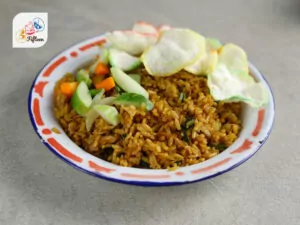
Rice Dishes
Nasi Goreng, a flavorful fried rice dish, pairs well with coconut water. The natural sweetness and refreshing quality of coconut water balance the savory and spicy notes of the fried rice.
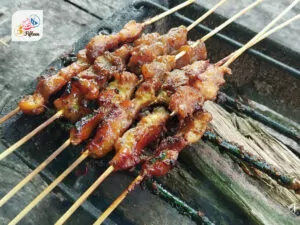
Grilled and Barbecued Dishes
Sate Lilit, a Balinese satay made from minced fish and aromatic spices, is best enjoyed with a Bintang beer. The beer’s light, crisp taste complements the grilled satay’s smoky and spicy flavors.
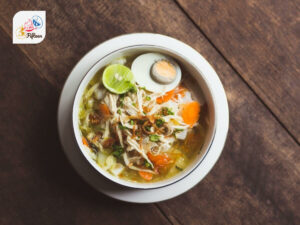
Soups
Soto Ayam, a fragrant chicken soup with turmeric and spices, pairs perfectly with a glass of Jamu. The earthy, slightly bitter taste of Jamu enhances the rich and aromatic flavors of the soup, creating a harmonious experience.
Ideally, you can even enjoy Balinese specialties with these beverages to enjoy the fullest culinary experience of this tropical island.
Remember to drop your favorite beverage choices from Bali in the comment section. Then, share these drinks with people who are looking to choose Bali as their next tourist destination.


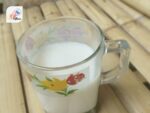
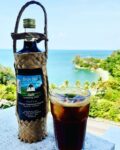

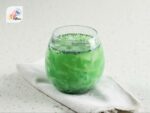
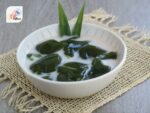

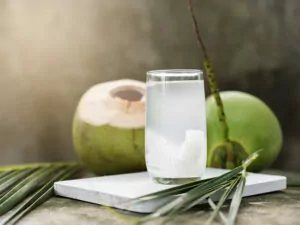
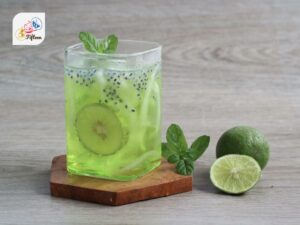
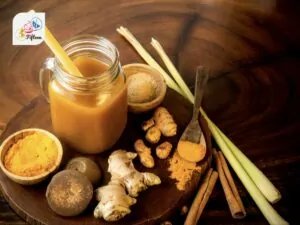
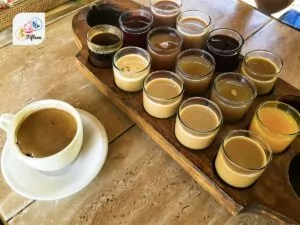
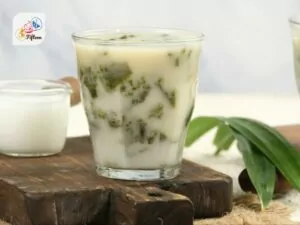
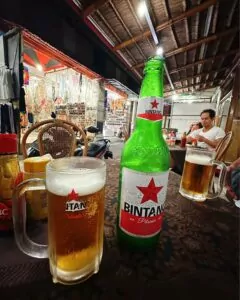
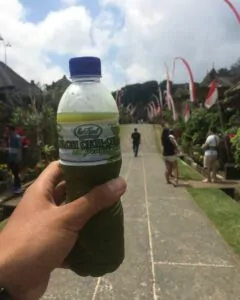
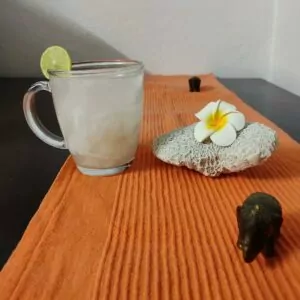
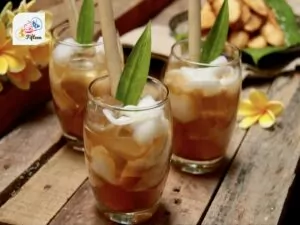

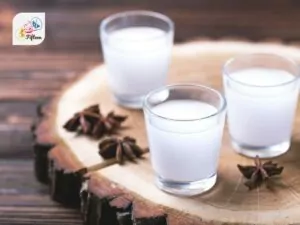
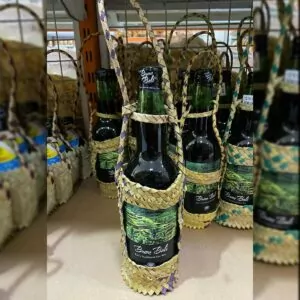

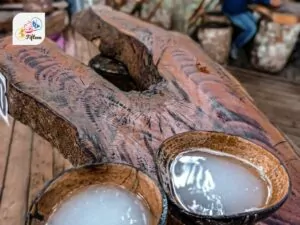
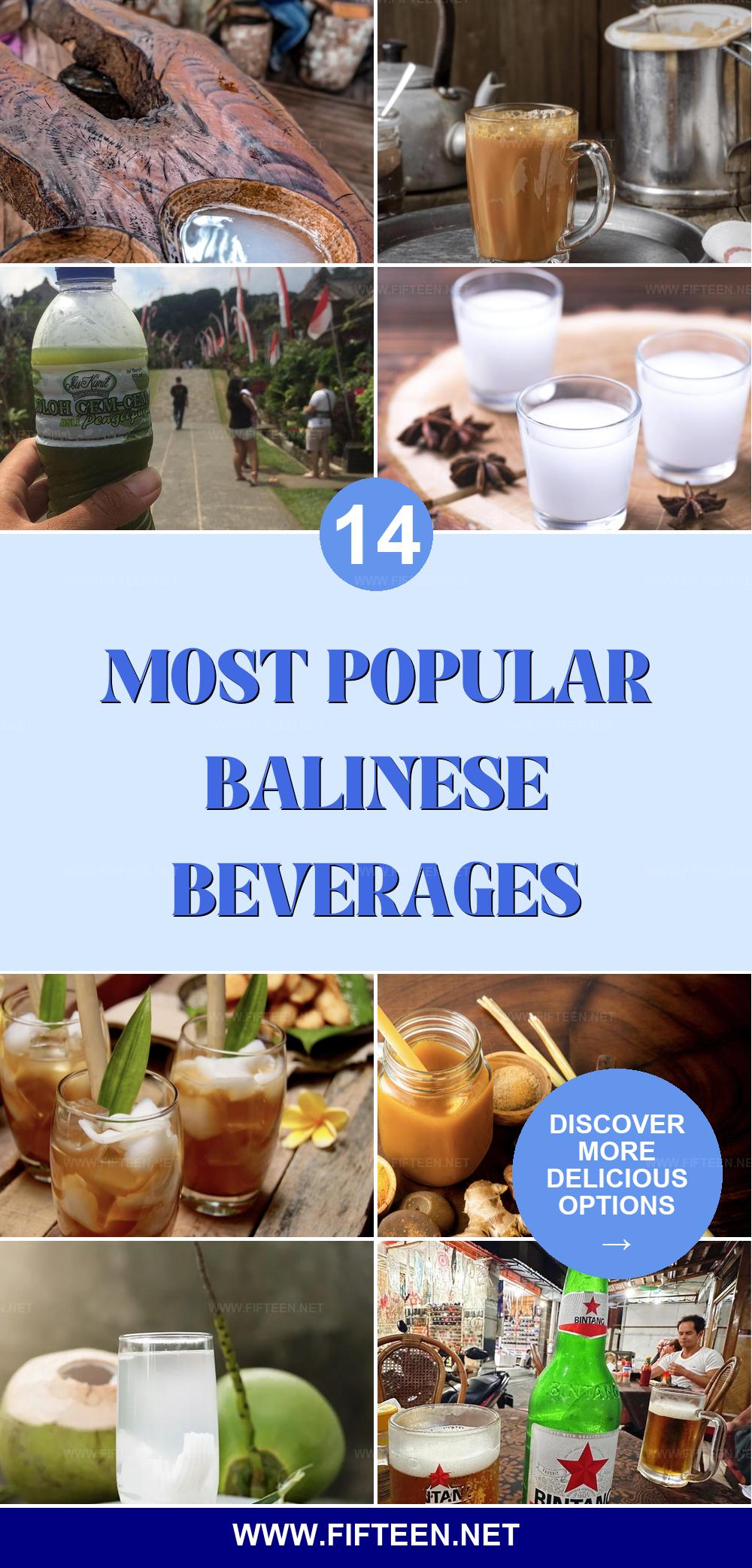
Jamie Scott
Editor in Chief, Senior Content Writer
Expertise
Home Cooking, Meal Planning, Recipe Development, Baking and Pastry, Food Editor, Cooking-video Maker, Western Food Evaluation Expert
Education
Le Cordon Bleu College of Culinary Arts
Local Community College, New York, NY
Jamie Scott is a skilled culinary expert and content creator specializing in Western cuisine. With over 15 years in the culinary field and formal training from Le Cordon Bleu, Paris, Jamie deeply understands how to blend nutrition with delicious flavors. His passion for cooking matches his commitment to making healthy eating accessible and enjoyable.
On Fifteen.net, Jamie brings a fresh perspective to classic dishes and beverages, offering readers insightful recipes, cooking tips, and a fresh view on meal planning that emphasizes taste, health, and simplicity.